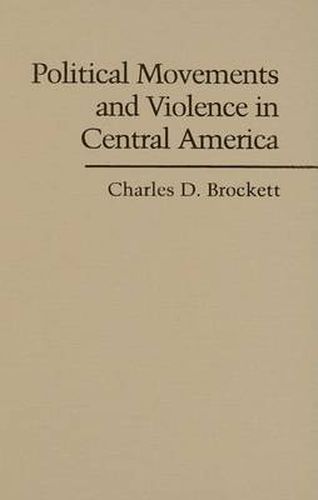Readings Newsletter
Become a Readings Member to make your shopping experience even easier.
Sign in or sign up for free!
You’re not far away from qualifying for FREE standard shipping within Australia
You’ve qualified for FREE standard shipping within Australia
The cart is loading…






This book offers an in-depth analysis of the confrontation between popular movements and repressive regimes in Central America during the three decades beginning in 1960, particularly in El Salvador and Guatemala. Examining both urban and rural groups as well as both nonviolent social movements and revolutionary movements, this study has two primary theoretical objectives. First, to clarify the impact of state violence on contentious political movements. Under what conditions will escalating repression provoke challengers to even greater activity (perhaps even the use of violence themselves) and under what conditions will it intimidate them back into passivity? Second, to defend the utility of the political process model for studying contentious movements, indeed, finding in this model the key to resolving the repression-protest paradox. The study is based on the most thorough set of events data on contentious political activities collected from Latin American countries.
$9.00 standard shipping within Australia
FREE standard shipping within Australia for orders over $100.00
Express & International shipping calculated at checkout
This book offers an in-depth analysis of the confrontation between popular movements and repressive regimes in Central America during the three decades beginning in 1960, particularly in El Salvador and Guatemala. Examining both urban and rural groups as well as both nonviolent social movements and revolutionary movements, this study has two primary theoretical objectives. First, to clarify the impact of state violence on contentious political movements. Under what conditions will escalating repression provoke challengers to even greater activity (perhaps even the use of violence themselves) and under what conditions will it intimidate them back into passivity? Second, to defend the utility of the political process model for studying contentious movements, indeed, finding in this model the key to resolving the repression-protest paradox. The study is based on the most thorough set of events data on contentious political activities collected from Latin American countries.